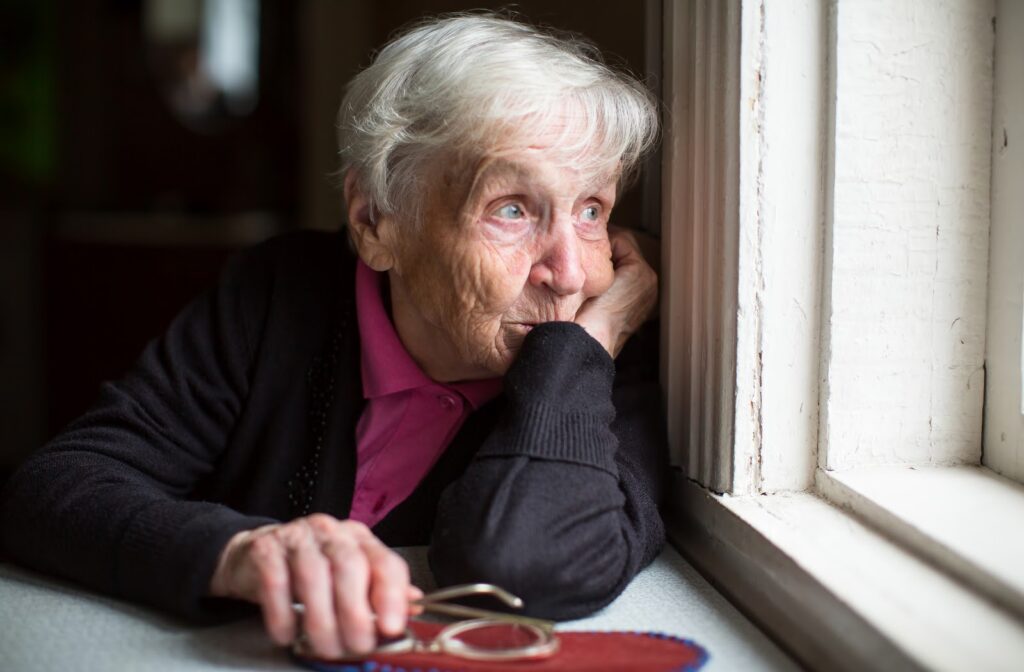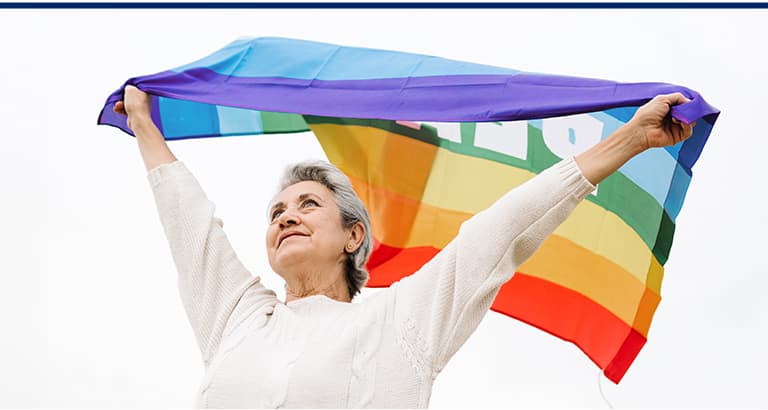Ageism is an often overlooked form of discrimination, and many older adults can experience this. Many treat seniors as if they’re “past their prime” or other negative stereotypes. While some older adults may need extra help, everyone deserves to be treated with integrity and respect, not reduced to a stereotype.
Ageism is not only discriminatory; it can negatively impact senior’s health. How does this happen? Continue reading to learn more about how ageism can negatively impact senior’s health.
What is Ageism?
According to the World Health Organization (WHO), ageism refers to stereotypes, prejudice, and discrimination towards others or oneself based on age. Ageism affects all aspects of life, and it includes how we think, feel, and act towards others because of their age.
Anyone can experience ageism anywhere. We become aware of age stereotypes from a young age, internalizing these stereotypes and letting them guide our feelings and behavior towards others. Examples of ageism from the WHO include:
- Healthcare rationing by age
- Limiting young people in decision-making
- Patronizing behavior to people of different ages
- Self-limiting behavior stemming from internalized stereotypes
Ageism can harm how we view ourselves, devalue our abilities, and impact our health. For older adults, ageism can impact all aspects of their lives and negatively affect their mental and physical health.
Senior Ageism
Older adults can be subjected to several negative stereotypes as they age. Cranky, unapproachable, helpless, and child-like are all common negative associations made about senior adults, but why do these negative stereotypes form?
While the WHO determines ageism ingrains itself within our society from an early age, researchers have suggested ageism towards older adults relates to how younger people expect them to behave. These stereotypes are related to succession, consumption, and identity.
- Succession: Younger people may assume senior adults have “had their turn” & should let a younger generation take over.
- Consumption: Younger people may feel resources are more useful for themselves than the older generation.
- Identity: Younger people may feel older adults should “act their age” & not attempt to steal the identities associated with a younger generation.
Ageism towards senior adults can affect their self-worth while having negative implications on their physical health. We know ageism can affect anyone, but how does it impact senior’s health?

How Ageism Can Affect Senior’s Health
Ageism towards older adults can negatively impact their health, well-being, and quality of health care they receive. Many of these effects occur when seniors believe the negative stereotypes about them are true.
A study from Yale University analyzed over 422 studies and discovered evidence of ageism affecting older adults’ health in 96% of the studies. Several categories of ageism affected senior’s health at the individual level. These included:
- Lower quality of life
- Mental illness
- Physical illnesses
Lower Quality of Life
Studies analyzed by Yale University determined that older adults have a shorter life expectancy when they believe in negative age stereotypes. These negative perceptions of seniors can reduce their independence and dignity.
A report from CARF International discussed how seniors may feel uncomfortable revisiting places after having negative experiences. Older adults may not want to leave the house, becoming socially isolated. Loneliness presents many health risks and can lead to a lower quality of life.
Mental Illness
Ageism can have an impact on a senior’s mental health. 95% of the Yale-analyzed studies showed evidence of ageism affecting conditions such as depression. Exposure to negative age stereotypes is associated with anxiety, depression, and low self-esteem.
Believing in the negative stereotypes of seniors, such as being helpless, can even contribute to a decreased will to live.
Physical illnesses
Ageism can have negative effects on a senior’s physical health. Believing the negative stereotypes of older adults may cause less desire to live a healthy lifestyle, and older generations may have less access to quality healthcare.
Seniors experience higher levels of heart disease and hearing loss when doctors disregard their concerns. In 85% of the studies analyzed by Yale University, ageism corresponds with older adults having less access to health care treatments.
Ageism can affect older adults’ physical and mental health while lowering their quality of life. While various studies show ageism can harm seniors’ health, Yale University found encouraging news in their findings. With the right strategy, you can begin to counter the negative effects of ageism.
Countering Ageism
When older adults adopt a more positive perception of their age, they experience less anxiety and negative thoughts. Rejecting these stereotypes decreases mental illness development. Creating a social and physical support system can help seniors.
Providing seniors with the support they need can develop more positive self-perceptions, known to increase life expectancy by 7.5 years. Many negative stereotypes of seniors exist, but finding the right community can help seniors mental and physical health. If you or a loved one is interested in receiving consistent support in their social circle, contact your local assisted living community.





